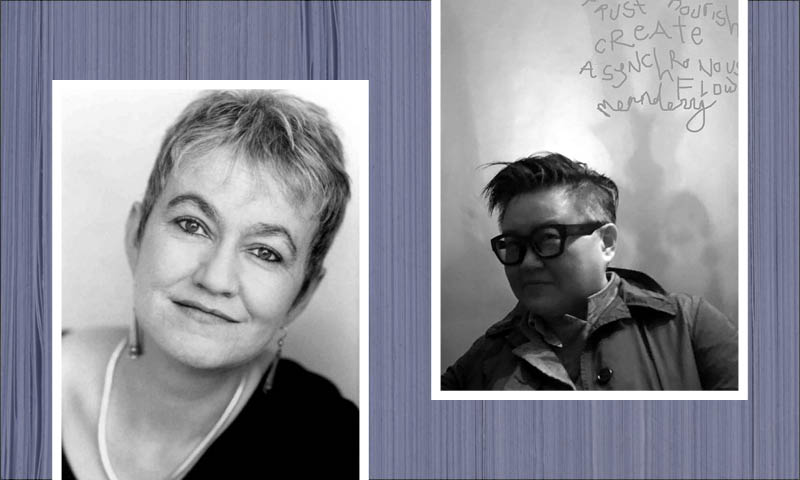
‘For me, it is the tone’: Fitzrovia, London, 2001, late autumn, the appetizer for two has just arrived and the two short-haired ladies are still on about what matters the most in a poetry, not just quality, translation. I so cherish that Sarah, my dear, a whip-smart poet with a wide smile, who had kindly invited me, then just a curious PhD student from Birkbeck, to a series of ‘small experimental poetry translation workshops’ at SOAS. It is while working with Sarah and many other brilliant friends at the Poetry Translation Centre that I began to see poetry translation as not only a literary channel for promoting transculturalism but an interlingual art in motion, an act of ‘third’ intertextual worlding where the conundrum of translating the untranslatable remains part of the grammar. I am happy and honored to contribute to this visionary work started by Sarah, this truly global, vital task of ‘gap gardening’, as Rosmarie Waldrop would put it.
Now in Hell’s Kitchen, New York City, 2021, I’m eatalking with Sarah over there again, imagining what she would make of this pandemic paradox today that keeps us all apart together and what kind of gardening skills she would bring to the table. How can we better mind those gaps without merely minding them? When and where do languages help or hurt? Why getting it ‘just’ right matters. Who cares? So now, more precious than ever is poetry’s communicative economy, its nomadic capacity to connect otherwise monadic beings without crushing any of them, and with my esteemed fellow judges, Rosalind Harvey and Kit Fan, I look forward to co-mining this supple world of transliterary teleportation, where oddity and clarity get to merge emergingly, each time in some strangely intimate, impossibly right combination. ‘Stop worrying, start working’, you might just say, and yes, we are on it.

